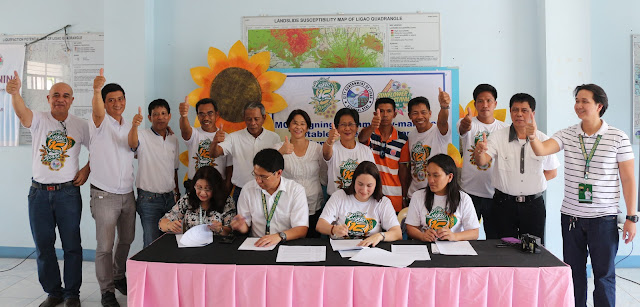CPWASH was “conceptualized to install low-cost water supply technology and sanitation systems that address on safe/clean potable water and sanitation in Agrarian Reform Communities,” as discussed by Provincial Agrarian Reform Program Officer I Estreluna G. Ante during the launching of the project.
CPWASH project sites in Ligao City include Oma-oma, Tiongson, and Pandan with the following facilities:
- Oma-Oma : Bio-Gas Reactor (1 unit), Mould for Bio-Gas (1 unit), Iron Removal Filter (IRF) (1 unit), Mould for IRF (1 unit), Bio Sand Filter (2 units)
- Tiongson: Rain Water Collector (1 unit), Iron Removal Filter (IRF) (1 unit), Bio Sand Filter (2 units)
- Pandan: Iron Removal Filter (IRF) (1 unit), Bio Sand Filter (2 units)
An estimated total of 168 households can benefit from the 13 facilities that would only cost Php 112,800.
The project also aims to “enhance the competencies of LGU field implementers in implementing a localized and sustainable CPWASH intervention[1].” Therefore, the MOA emphasized the role of DAR in providing technical, financial, and logistics counterparts for capability building, spearheading CPWASH project implementation, mobilize end-users’ participation, and conduct monitoring and prepare reports.
LGU-Ligao, on the other hand, shall provide labor and materials, assign CPWASH point person, ensure schedule for the construction and installation of facilities, create a Water and Sanitation (WATSAN) Sub-committee, and ensure sustainable management of the CPWASH facilities. Lala Peñafiel/albay3d.blogspot.com
[1] Department of Agrarian Reform












